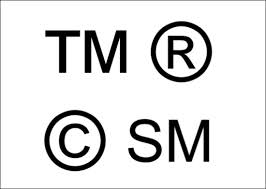DJ’s
In recent years, DJs have become very influential within music scene, but their relevance from an artistic or commercial point of view has not been matched by regulation, considering the impact that DJs have on recording industry. As a consequence, DJs in many jurisdictions have been (and still are) ignored by intellectual property legislation, leading to a legal vacuum that is damaging for all those involved in music industry.
To better understand the DJ’s work, it is important to distinguish the concept of ‘author’, ‘remixer’, ‘performer’ and ‘DJ’: the ‘author’ is the person who creates an original work or song; the ‘remixer’ is the person who creates a version of a pre-existent work; the ‘performer’ is the person who sings, reads, acts, interprets or otherwise performs a work; and the DJ is the person who plays the songs made by the author or the remixer.
A DJ may carry out their activities by employing different techniques: the best-known of these being ‘beat matching’, ‘scratching’ and ‘live’.
Beat matching consists of blending two records from one, through a seamless mix or transition into another whilst maintaining the same tempo or speed of the original record. In an attempt to make a single mix that flows together and has a pleasing structure, it is necessary to combine equalization, attention to phrasing and track selection. Secondly, scratching is the way in which the DJ creates characteristic sounds by moving a vinyl record back and forth on a turntable. Additionally, the DJ may manipulate the cross fader on a DJ mixer. And finally, ‘live’, which is the most recent of the three techniques and consists of a mixture of sounds and songs made using computer programs and hardware.
Although the DJ’s performance is not expressly approved, the original author of the work obtains a benefit of it in two different ways. On the one hand, the original author would receive an economic remuneration for reproduction, distribution and public communication of their works; on the other hand, it is an important promotion for the original author’s song.
DJs generate considerable economic benefits, and because their performances can be compared to the most popular singers, bands and music concerts in terms of audience size, we can refer to the DJ as an important figure within the music industry.
Dj’s Image rights
Dj’s earn money from playing music in discotheques and public and private events. This is the so called: “Playing Income”. However now days the greatest part of the income of successful DJ’s is earned from endorsement deals and sponsorship. The payment for these deals will be based on the licensing of the image rights of the DJ’s. This is called the “Non Playing Income”. The Non Playing Income has the ability to continue long after the Playing Income ceases. Therefore it is of importance to create a strategy how to manage the image rights of a DJ for a long period. Due to the increasing complexity of image rights deals and licensing processes expert guidance is required to achieve satisfying results.
For the purposes of licensing of image rights it is of importance to have the image rights correctly registered and protected. Most jurisdictions are not providing clear and efficient manners to register image rights based on their legislation. Even when the DJ has established an image rights company if the management and legal property of the underlying image rights in the name of the image right company is not sufficient and legally correct there might be significant repercussions at a later date. Such including adverse tax consequences.
As of 2012 Guernsey introduced the world’s first registerable image right which gives the ability to register, protect and license image rights. This register is now day’s used by individuals who have in common an ability to generate significant wealth from the use of their image in conjunction or quite apart from what they might do for their day job.
The Guernsey Image Right allows personalities to register their images, videos, nicknames, mannerisms and any distinctive characteristics that identify them. These rights are registered on the register and can include all of those features that are so difficult to define in a DJ’s endorsement, sponsoring or merchandising contract. Consequently vague definitions for gestures and mannerism of the DJ’s can be avoided and now days be clearly defined in the contracts. A clear registration of image rights provides not only the advantage of clarity it is also of importance for succession planning, wealth management and potential enforcement.
Services
We are offering the following services to achieve receiving of tax neutral Non Playing Income for DJ’s:
- registration of DJ’s their images in the Guernsey Image Rights register;
- drafting of endorsement, sponsoring and or merchandise agreements for DJ’s; and
- setting up of licensing companies to achieve asset protection and tax neutral exploitation of the DJ’s registered image rights.
Please contact us to apply for our services.





